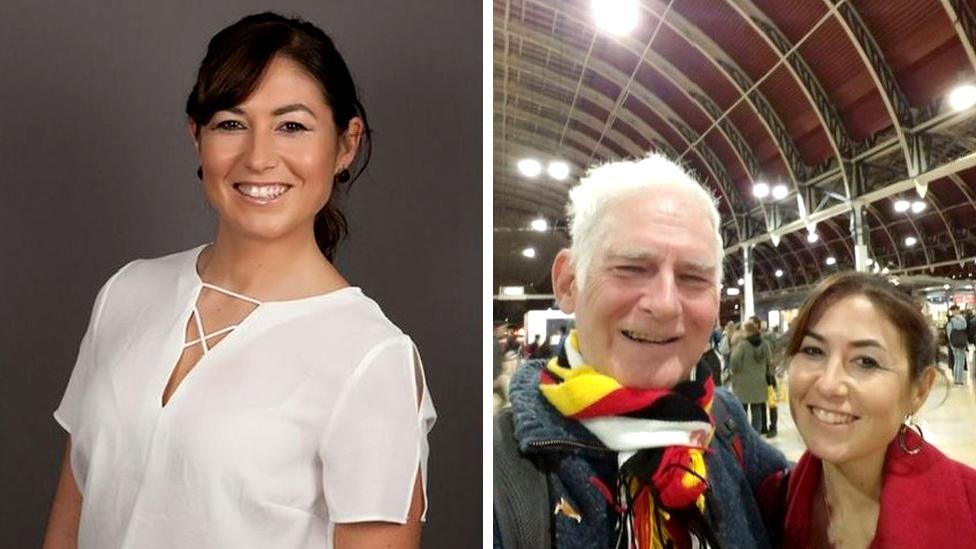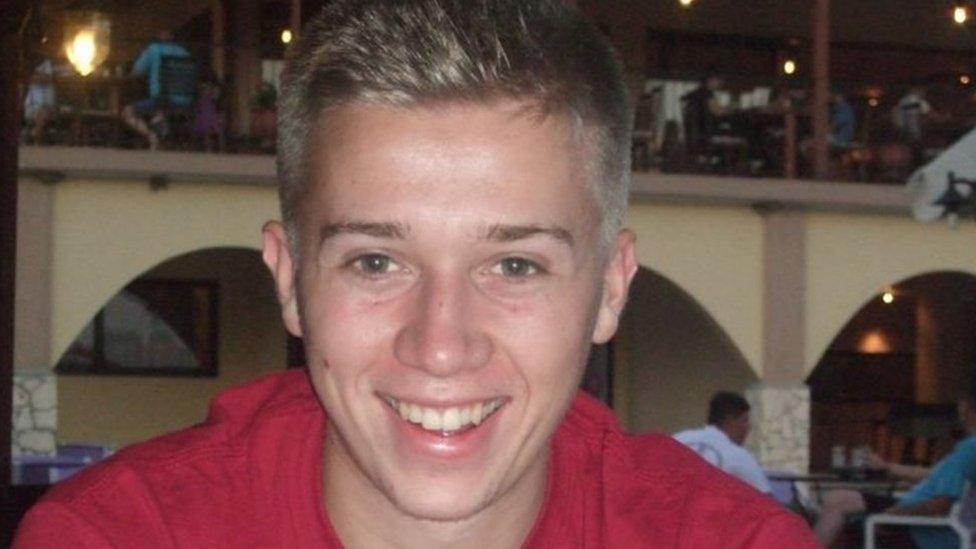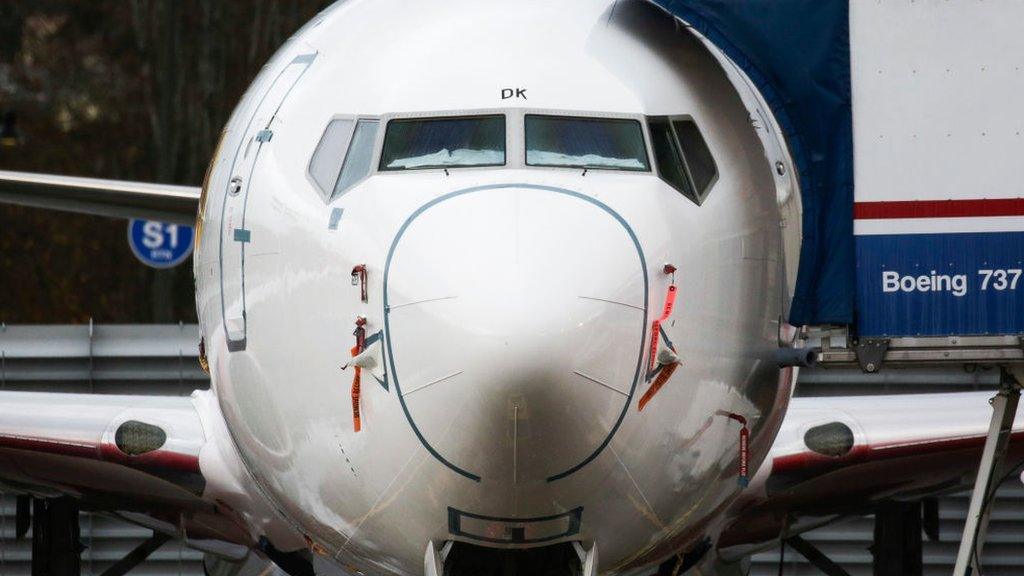Boeing 737 crash: Coroner rules Britons unlawfully killed
- Published

Joanna Toole was on board the plane that crashed in 2019
Three British people who died in a plane crash were unlawfully killed, a coroner has ruled.
Sam Pegram, Oliver Vick and Joanna Toole were among 157 people who died aboard a Boeing 737 Max airliner in Ethiopia in 2019.
Lawyers for the families had sought a verdict of unlawful killing ahead of an inquest into their loved ones deaths.
The court heard flight ET302 from Addis Ababa to Kenya crashed shortly after take-off because of a design flaw.
A sensor failure meant that flight control software, known as MCAS, deployed at the wrong time and pushed the aircraft into a catastrophic dive.
Despite the pilots' efforts to regain control of the plane, it crashed in remote farmland outside the Ethiopian capital.
West Sussex coroner Penelope Schofield said the incident occurred as a result of a series of failures relating to the development and operation of MCAS.
The flight control software was designed to make the plane easier and more predictable to fly under very specific circumstances. This would avoid the need for pilots used to the previous generation of 737 to undergo expensive retraining, something which would otherwise have made the plane less attractive to airlines.
Two employees of the manufacturer, the coroner said, had deliberately deceived regulators and operators of the 737 Max over the operation of a safety critical system.
'Like losing part of yourself'
The inquest heard Mr Pegram's parents describe the 25-year-old humanitarian worker as a kind, compassionate man with an infectious sense of humour.
"He had a passion for human rights, but also had the drive and inner strength to make a difference," his father Mark said.
Ms Toole's father explained how his 36-year-old daughter, a sustainability campaigner, had "the rare combination of empathy for animals and people".
The death of a child, he said was "like losing a part of yourself," he added.
Mr Vick, a humanitarian worker from Berkshire, was described by his mother Cheryl as a devoted father to his daughters, who had an "unwavering focus on making the world a better place for as many people as possible".
Abdulqadir Qasim, a former Somali refugee, who arrived in the UK aged 25 had been on his way to Kenya to have a meeting about a new job when he died in the crash.
There was no inquest into his death, but in a video statement in court on Monday, his wife Qamar described how he had been a "wonderful husband and father".
His youngest son, she said, had been a toddler at the time of the crash and could not remember his dad.
Prior to the Ethiopia crash, an identical failure caused another Boeing 737 Max to crash into the sea off Indonesia, killing 189 people.
The 737 Max was eventually grounded for 20 months after the two crashes.
The company has admitted responsibility for the loss of the Ethiopian flight, but in an agreement with the US government it gained immunity from prosecution in exchange for $2.5bn (£1.9bn) in fines and compensation.
Related topics
- Published9 July 2023

- Published23 September 2022

- Published8 January 2021
